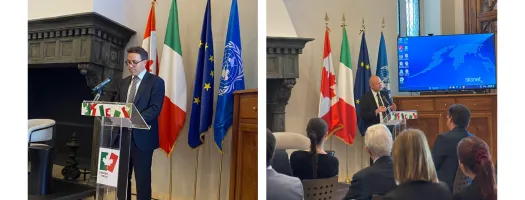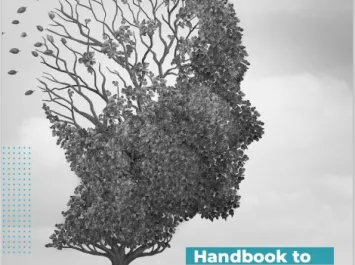The Embassy of Canada in Rome and the United Nations Interregional Crime and Justice Research Institute (UNICRI) co-hosted the high-level roundtable discussion Integrity and Security in Critical Mineral Supply Chains. The event gathered diplomats, policymakers, international organizations, researchers, and civil society representatives to discuss the growing vulnerabilities linked to the global demand for critical minerals.
As countries accelerate the transition to renewable energy and digital technologies, minerals such as nickel, cobalt, rare earth elements, and tin have become essential for electric vehicles, semiconductors, and clean energy systems. However, this rapid growth has also created new opportunities for illegal mining, corruption, environmental degradation, and illicit financial flows, posing risks to both sustainable development and global stability.
Opening remarks were delivered by Jeremy Adler, Deputy Head of Mission at the Embassy of Canada, and Leif Villadsen, Acting Director of UNICRI. Both highlighted the importance of international partnerships to secure transparent and sustainable supply chains.
Leif Villadsen underlined UNICRI’s work in bridging the gap between research and action. The Institute activities combine policy-oriented research, capacity-building, and partnership development to strengthen crime prevention and enforcement. In the context of critical minerals, this means understanding how criminal networks operate, identifying vulnerabilities in supply chains, and developing practical tools and strategies to address these threats.”
The event was moderated by Matthew Burnett-Stuart, Programme Officer at UNICRI, who opened the discussion by outlining UNICRI’s work on critical minerals, including research on organized crime, corruption, and environmental harm within supply chains.
The roundtable discussion explored geopolitical, economic, and criminal dimensions of critical mineral supply chains and examined the role of emerging technologies, such as artificial intelligence and satellite monitoring, in improving traceability and enforcement.
Panelists included:
- Lorenzo Colantoni, Journalist and Researcher, UNICRI Consultant
- Claudia Carpanese, Researcher, United Nations Office on Drugs and Crime (UNODC)
- Michela Corvino, Earth Observation Security Applications Engineer, European Space Agency (ESA)
- Sara Marcucci, Founder, AI + Planetary Justice Alliance
Presentations addressed a range of issues, from cross-border criminal networks involved in illegal extraction, to the use of earth observation data to detect environmental crimes, and the hidden costs and supply chain impacts of artificial intelligence technologies. The discussion also highlighted the complexity of tackling these challenges and the importance of collaboration between producing and consuming countries to reinforce supply chain integrity.
This event builds on Canada’s leadership within the G7 Action Plan on Critical Minerals and aligns with broader international efforts to strengthen supply chain resilience and promote responsible sourcing practices.



